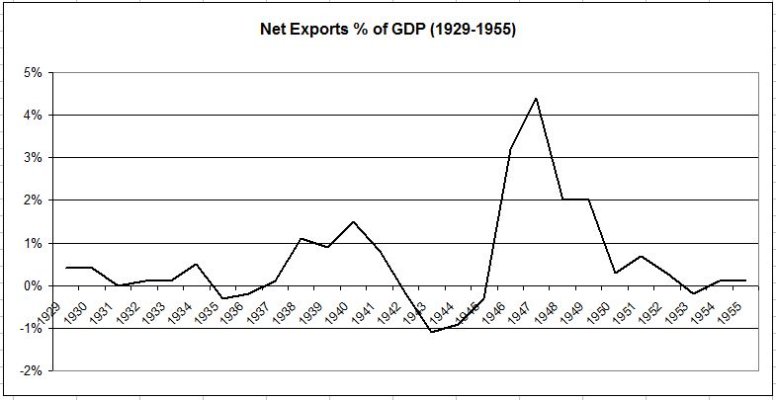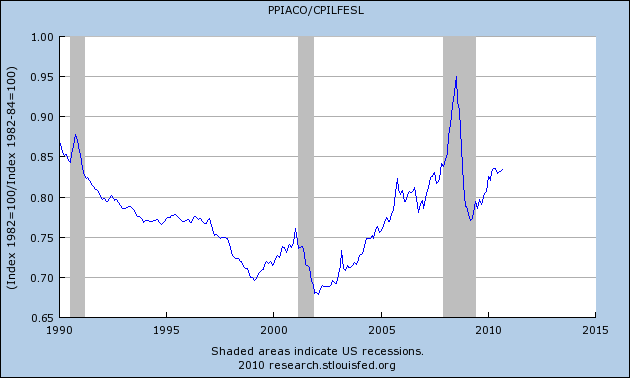Originally Posted by
traineeinvestor  With respect, while these were good things, it was other factors which drove America's economic prosperity post WWII - not least that fact that following WWII Americal had no serious rival as a substantial free market economy.
With respect, while these were good things, it was other factors which drove America's economic prosperity post WWII - not least that fact that following WWII Americal had no serious rival as a substantial free market economy.
I don't understand your reply to traineeinvestor , it doesn't seem to follow, can you elaborate?
The US period of economic development post WW2 is remarkable. Internal demand, investment, real GDP, population, business profitability, labor productivity all grew, unevenly but nonetheless strongly, for more than a generation. It was both inwardly focused and self sustaining. This is unique in the world. Many things contributed to this, the most significant being the US labor force and industrial base survived the war unlike other major countries. The US was poised to compete and faced no real global competition.
Still, there were other very significant elements, such as:
The Marshall Plan, which created demand for capital goods production just when the US was the major global producer.
The GI Bill, which enabled vets to get higher education and supported the US university system.
Land availability plus FHA (credit, mortgage) enabled a generation to secure credit, build houses, accumulate wealth and stimulate employment.
The transportation infrastructure (RR, highway system, air transport) enabled production and population to be decoupled. This may be the most underappreciated factor of success.
Social infrastructure (police / fire / schools / healthcare / churches) everywhere, especially the “in-between small town rural and large city” where most of the US lives. This was enabled by the transportation infrastructure and encouraged by state and federal policy with substantial federal grants and tax relief.
The US Military, not only for the security it has provided much of the world but also support to research and development. Other US gov’t support to research has also been critically important.
The common element in these things is that they were all gov’t sponsored or enabled. Some are pre-WW2, such as railroads and FHA. The list is not complete. But the point is that our economic miracle is quite an accomplishment, but one that would not have happened without these key gov’t initiatives.



